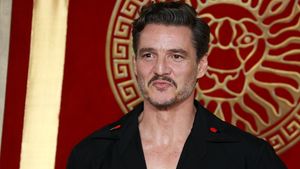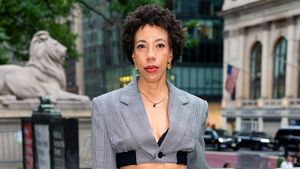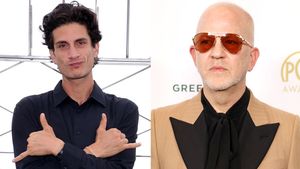Sen. Hillary
Clinton said Tuesday during her confirmation hearing for
secretary of State that she intended to review the
department's policy of not extending benefits to
partners of lesbian, gay, bisexual, and transgender
foreign service officers. But Clinton stopped short of
giving a specific commitment to make partner benefits
available, saying she needed more information on the
existing policies.
Beyond being
deprived of health care benefits, same-sex partners of
foreign service personnel are currently unable to access
other services available to heterosexual spouses, such
as subsidized relocation, language training,
employment opportunities, on-site medical treatment,
and evacuation aid in emergency situations.
Democratic
senator Russ Feingold of Wisconsin posed the question to
Clinton after he noted that addressing these inequities
was a natural outgrowth of the need to build a more
robust diplomatic corps.
"Will you support
changes to existing personnel policy in order to
ensure that LGBT staff at State and [the U.S. Agency for
International Development] receive equal benefits and
support?" he asked.
Clinton
responded: "Senator, this issue was brought to my attention
during the transition. I've asked to have more briefing on
it because I think that we should take a hard look at
the existing policy. As I understand it, but don't
hold me to it because I don't have the full briefing
material, but my understanding is other nations have moved
to extend that partnership benefit. And we will come
back to you to inform you of decisions we make going
forward."
LGBT diplomats
who work for the State Department welcomed the comments
from Senator Clinton, who is expected to be confirmed next
week.
"Secretary-designate Clinton has been a good friend to the
LGBT community, and I am delighted that she recognizes
that fairer policies make good business sense," said
Michelle Schohn, president of Gays and Lesbians in
Foreign Service Affairs Agencies. "LGBT diplomats
and aid workers serve overseas in some of the most dangerous
locations, but current State Department policies continue to
be deny equal treatment for our families. I am hopeful
that Secretary Clinton will work quickly to implement
overdue reforms so that we can continue to serve our
country at a time when it needs us most without having to
choose our job over our family."
Schohn has
personal experience with the inequities faced by LGBT
couples. She was a "member of household" when her
partner, who has been in the foreign service seven
years, was stationed in Baku, Azerbaijan. Schohn
ultimately decided to become a U.S. diplomat herself when
she realized it would be too difficult to accompany
her partner for the duration of her
career without having the benefits afforded to
heterosexual spouses.
"I left a career
I loved," said Schohn, who has now been a foreign
service officer for five years. "I am proud of my
service, but joining the State Department is not a choice
everyone can or should have to make." (Kerry Eleveld,
Advocate.com)













































































